For the past three years although books have been accumulating on my desktop, I don’t actually read for pleasure as 90% of my readings are either about my studies in European Culture & Civilization or my Delta Diploma. However, between Aristotle’s Nicomachean Ethics and Richard’s Curriculum Design I did manage to complete 10 novels in 2022, eight of which I loved and thought you’d be interested in reading and why not loving as well!
I could write reviews but I leave those to the experts. When I choose a book, I first look at the cover (lame I know but I admit doing it), then I open it and read a random page and if I like it, I buy it. This system seems to have always worked for me, so I thought I’d give you an inspirational quote or just phrases I loved coming from each of the 8 novels I read in 2022 and enjoyed that will hopefully give you a glimpse of what they’re like.
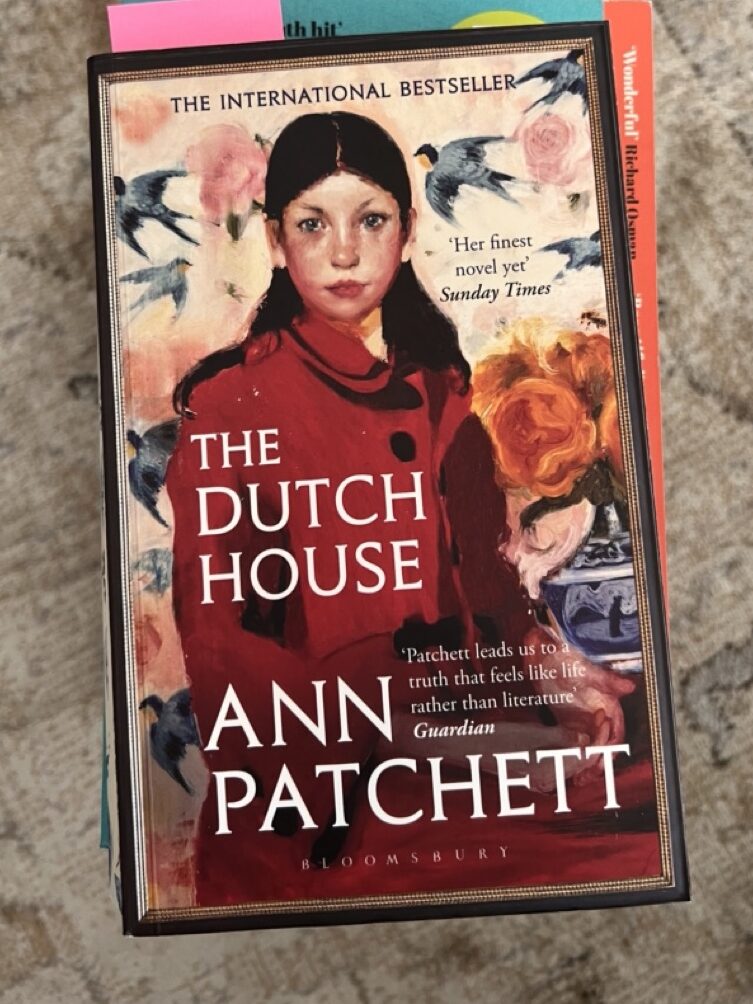
The Dutch House by Ann Patchett Bloomsbury Publishing, London, 2019, page 45
“Do you think it’s possible to ever see the past as it actually was?” I asked my sister. We were sitting in her car, parked in front of the Dutch House in the broad daylight of early summer. The linden trees kept us from seeing anything except the linden trees. I had thought the trees were enormous when I was young but they’d kept right on growing. Maybe one day the’d grow into the wall of Andrea’s dreams. The car windows were rolled down and we each kept an arm out – Maeve’s left, my right – while we smoked. I had finished my first year of medical school at Columbia. It would be the summer we would quit smoking, more or less, but on this particular day we were still only thinking about it.
“I see the past as it actually was,” Maeve said. She was looking at the trees.
“But we overlay the present onto the past. We look back through the lens of what we know now, so we’re not seeing it as the people we were, we’re seeing it as the people we are, and that means the past has been radically altered.”
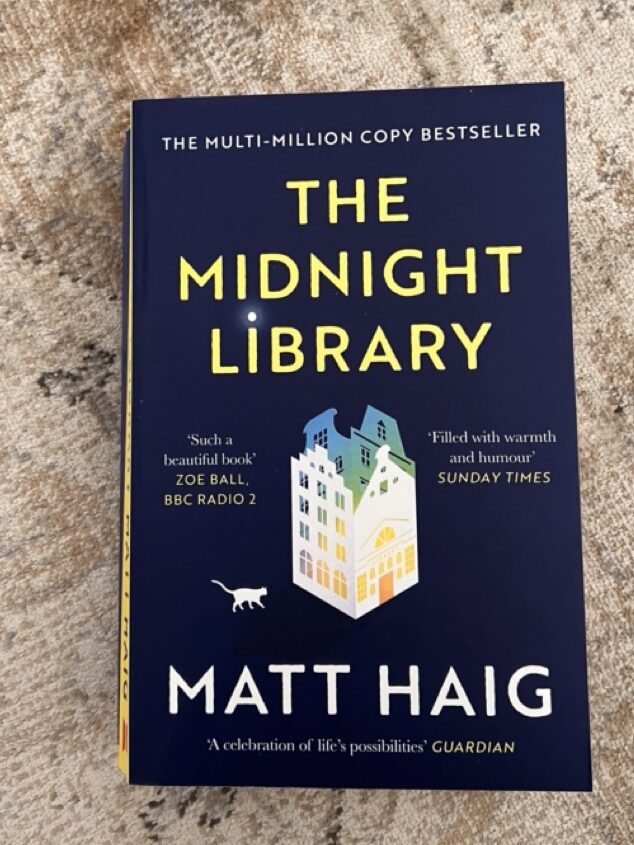
‘Every second of every day we are entering a new universe. And we spend so much time wishing our lives were different, comparing ourselves to other people and to other versions of ourselves, when really most lives contain degrees of good and degrees of bad.’
The Midnight Library, Matt Haig, Canongate Boos, 2021, Edinburgh, page 179
Marcelo and Joanna and the other Brazilian guy were staring at her wide-eyed, but she was on a roll now. Freewheeling.
‘There are patterns to life … Rhythms. It is so easy, while trapped in just the one life, to imagine that times of sadness or tragedy or failure or fear are a result of that particular existence. That it is a by-product of living a certain way, rather than simply living. I mean, it would have made things a lot easier if we understood there was no way of living that can immunise you against sadness. You can’t have one without the other. Of course, they come in different degrees and quantities. But there is no life where you can be a state of sheer happiness for ever. And imagining there is just breeds more unhappiness in the life you’re in.’
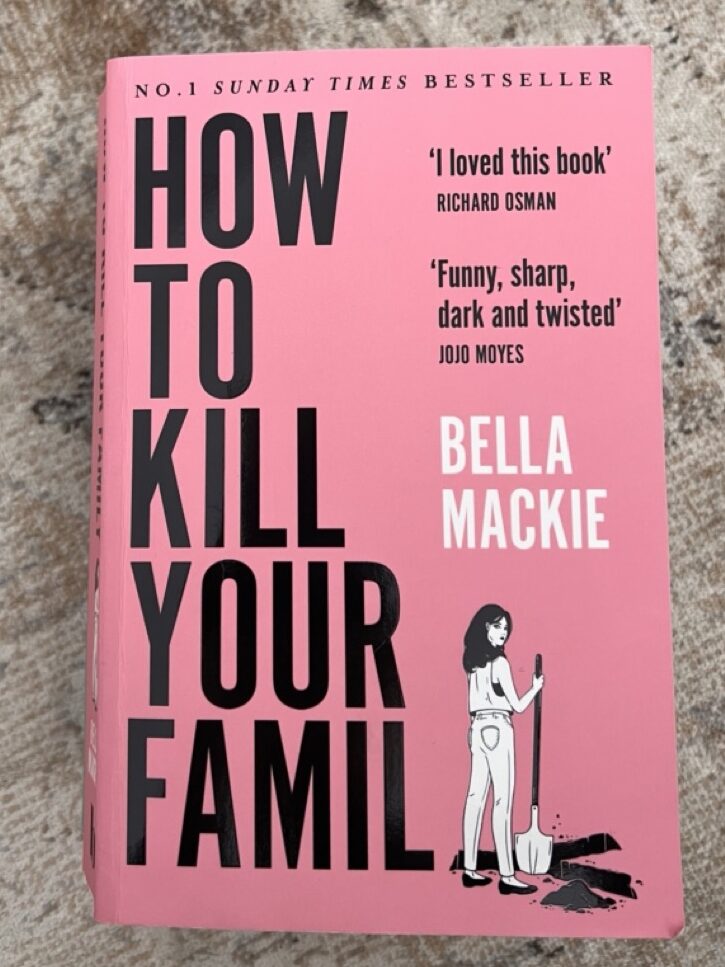
“So Bryony did what any less than self-respecting person does in the modern age – she became an influencer.
How to Kill Your Family, The Borough Press, London, 2022, page 260
A lot of people might not know what that is. There’s no reason to be smugly proud about such a lack of knowledge. The only thing worse than someone who enthusiastically devours all pop culture and spews it up (wearing a T-shirt that says ‘We should all be feminists’ while queuing up for forty-five minutes to buy the latest trainers made by women in a sweatshop) is someone who takes pride in not understanding new trends. You’re not better than that. You don’t get points for deliberately trying to avoid learning about what’s happening around you. And you’ve almost certainly looked at the Mail Online in the past months, so cut the smug. An influencer is someone who has a large social media presence and uses that to endorse brands for money. No different from the heady days of the Nineties when big name actors would hawk toothpastes in other countries for mega bucks. Well, except that this new group isn’t famous for anything but their influencing. There is no talent that lies behind it, no singing or art or writing that gave them a springboard to start flogging stuff. It’s usually just thin white women (or bulky white men) who have preternaturally bright smiles and unnervingly beige homes (all the better to photograph tat in) and who try to convince the minions that they possess a lifestyle that others should desperately try to emulate. Usually the influencer also bangs about gratitude, or living in the moment, and pretends they’ve suffered from mild anxiety or struggle with some unspecified hardship in order to present as more reliable. The platitudes that gush from these people could overpower the Thames barrier. Watching some of this stuff will make you wish that it would.
So it was a perfect job for Bryony. Job is possibly a stretch. It was a perfect fit for Bryony.
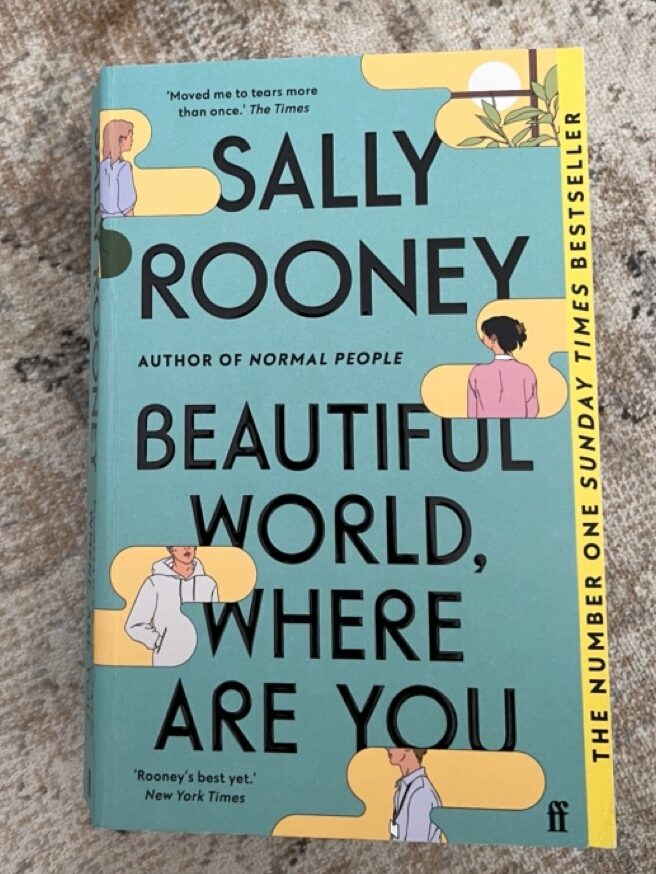
Your paragraph about time also reminded me of something I read online recently. Apparently in the Late Bronze Age, starting about 1,500 years before Christian era, the Eastern Mediterranean region was characterised by a system of centralised palace governments, which redistributed money and goods through complex and specialised city economics. I read about this on Wikipedia. trade routes were highly developed at this time and written languages emerged. Expensive luxury goods were produced and traded over huge distances – in the 1980s a single wrecked ship from the period was discovered off the coast of Turkey, carrying Egyptian jewellery, Greek pottery, blackwood from Sudan, Irish copper, pomegranates, ivory. Then, during a seventy-five-year period from about 1225 to 1150 BCE, civilisation collapsed. The great cities of the Eastern Mediterranean were destroyed or abandoned. Literacy all but died out, and entire writing systems were lost. No one is sure why any of this happened, by the way. Wikipedia suggests a theory called ‘general systems collapse’, whereby ‘centralisation, specialisation, complexity, and top-heavy political structure’ made Late Bronze Age civilisation particularly vulnerable to breakdown. Another of the theories is headlined simply: ‘Climate change’. I think this puts our present civilisation in a kind of ominous light, don’t you? General systems collapse is not something I had ever really thought about as a possibility before. Of course I know in my brain that everything we tell ourselves about human civilisation is a lie. But imagine having to find out in real life.
Beautiful World, Where are you – Sally Rooney, Faber & Faber Limited, London, 2022, page 40
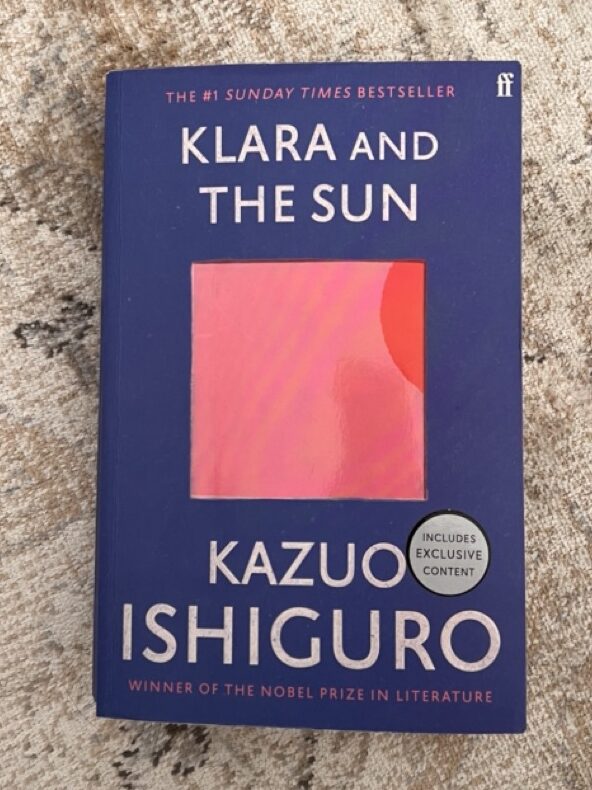
‘Let me tell you something, Klara. Children make promises all the time. They come to the window, they promise all kinds of things. They promise to come back, they ask you not to let anyone else take you away. It happens all the time. But more often than not, the child never comes back. Or worse, the child comes back and ignores the poor AF who’s waited, and instead chooses another. It’s just the way children are. You’ve been watching and learning so much, Klara. Well, here’s another lesson for you. Do you understand?”
Klara and the Sun, Kazuo Ishiguro, Faber & Faber Limited, London, 2022 page39
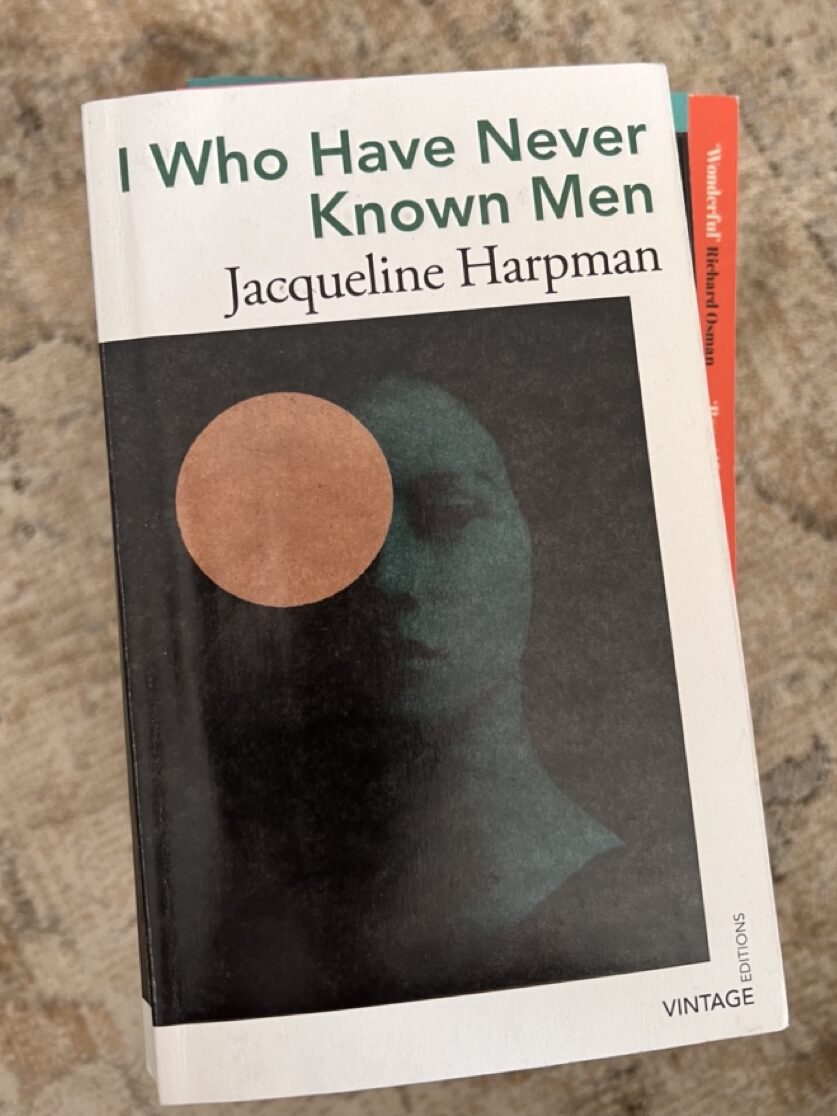
There’s no continuity and the world I have come from is utterly foreign to me. I haven’t heard its music, I haven’t seen its paintings, I haven’t read its books, except for the handful I found in the refuge and of which I understood little. I know only the stony plain, wandering, and the gradual loss of hope. I am the sterile offspring of a race about which I know nothing, not even whether it has become extinct. Perhaps, somewhere, humanity is flourishing under the stars, unaware that a daughter of its blood is ending her days in silence. there is nothing we can do about it.
I Who Have Never Known Men, Jacqueline Harpman, Vintage, London, 2019, page 115
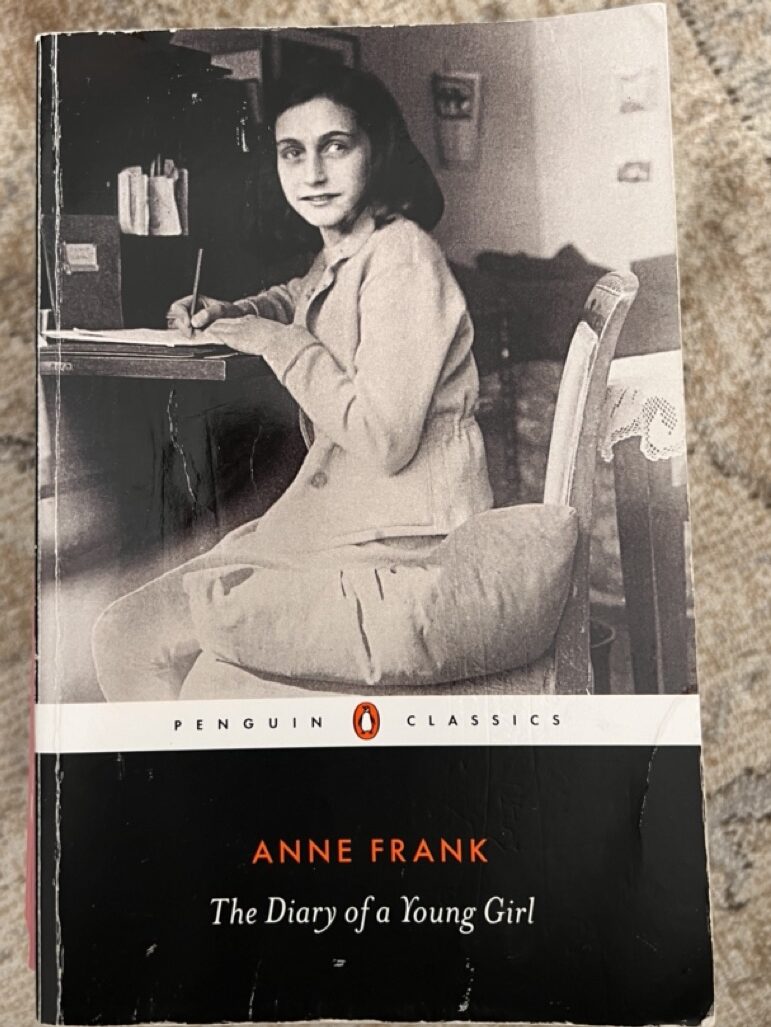
As you can no doubt imagine, we often say in despair, ‘What’s the point of the war? Why, oh, why can’t people live together peacefully? Why all this destruction?’
The question is understandable, but so far no one has come up with a satisfactory answer. Why is England manufacturing bigger and better aeroplanes and bombs and at the same time churning out new houses for reconstruction? Why are millions spent on the war each day, while not a penny is available for medical science, artists or the poor? Why do people have to starve when mountains of food are rotting away in other parts of the world? Oh, why are people so crazy?
I don’t believe the war is simply the work of politicians and capitalists. Oh no, the common man is every bit as guilty; otherwise, people and nations would have rebelled long ago! There’s a destructive urge in people, the urge to rage, murder and kill. And until all of humanity, without exception, undergoes a metamorphosis, wars will continue to be waged, and everything that has been carefully built up, cultivated and grown will be cut down and destroyed, only to start all over again!
The Diary of a Young Girl – The Definitive Edition, Anne Frank, Penguin Books, 2019, page 278
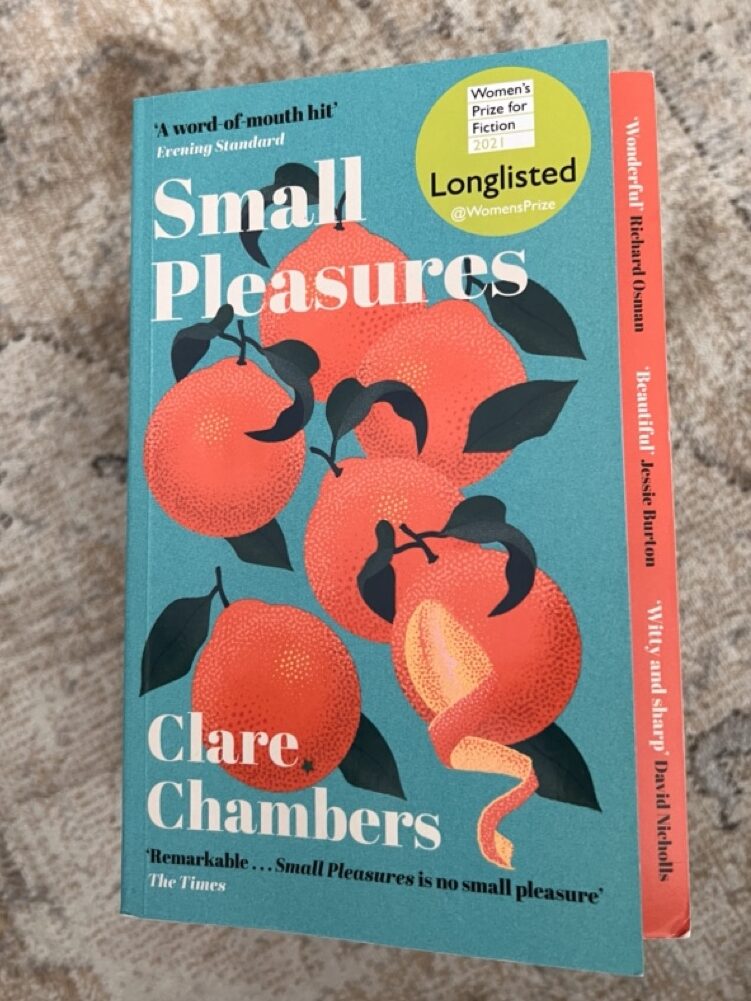
‘Are you a religious man, Mr tilbury?”
Small Pleasures, Clare Chambers, Weidenfeld & Nicolson, 2020, page
‘No more, nor less, than most people, I suppose. I don’t go to church much, except for weddings and funerals, but I’m glad it’s there.’
‘Did you marry in church?’
‘No. It was easier not to, in the circumstances. Frau Edel’s priest wasn’t very accommodating.’
‘You would think a priest of all people would be open to the idea of a virgin birth,’ Jean said.
Mr Tilbury met her glance for the first time. ‘They can be rather possessive about miracles, I’ve found.’
How do you choose books to read?
Have you found any of those quotes to be inspirational enough to make you read any of my eight choices or have you maybe read any already?
